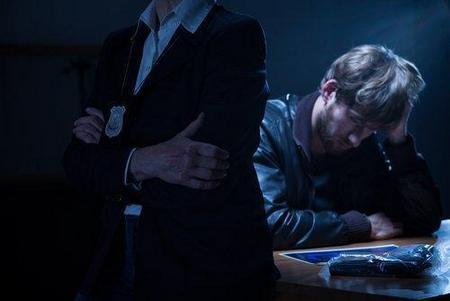Giving a False Confession
 Many people who have been taken into custody feel pressured and scared. When criminal suspects do not know their rights, there is a chance that law enforcement will take liberties with the suspect, questioning them and trying to draw out a confession, when the suspect should have asked for an attorney. Juveniles accused of a crime are particularly at risk for this to happen to them. Sometimes, law enforcement will say that the suspect admitted to something, or confessed, when in reality they did not, or sometimes law enforcement will twist something the suspect says and call it a confession. Regardless of how it happens, these are not true confessions. They are fake or coerced, and should not be taken as the truth.
Many people who have been taken into custody feel pressured and scared. When criminal suspects do not know their rights, there is a chance that law enforcement will take liberties with the suspect, questioning them and trying to draw out a confession, when the suspect should have asked for an attorney. Juveniles accused of a crime are particularly at risk for this to happen to them. Sometimes, law enforcement will say that the suspect admitted to something, or confessed, when in reality they did not, or sometimes law enforcement will twist something the suspect says and call it a confession. Regardless of how it happens, these are not true confessions. They are fake or coerced, and should not be taken as the truth.
Police and prosecutors will treat a false confession as if it were real, and proving that the confession was fake or coerced from the start can be challenging. A false confession can lead to a criminal conviction, a long prison sentence, and a lasting criminal record.
Why Do Suspects Give False Confessions in the First Place?
There are a number of reasons why a suspect might give a false confession. They might be overwhelmed by the whole situation, they might be pressured into the false confession, or police might have threatened the suspect into confessing or tricked the suspect by using psychological manipulation. The police might suggest that they have more evidence than they really do against the suspect, or that the charges that the suspect faces are less serious than they really are. These techniques can all be used to elicit a false confession from a criminal suspect.
Some suspects are vulnerable from the outset, and are more likely than the average person to give a false confession. Criminal suspects who have developmental disabilities, cognitive impairments, or emotional issues are more likely to crack under pressure, or are more likely to not understand what it is that they are doing. These individuals can be susceptible to influence, high-pressure tactics, and the power of suggestion.
Additionally, young individuals who are facing criminal charges may not fully understand the impact of what giving a false confession means for them. A young person might give a false confession because they are scared, or because they are trying to cover for their friends who perpetrated the crime. Juveniles often have an imperfect understanding about what the consequences are to admitting criminal guilt.
Anyone who is facing criminal charges should ask for an experienced criminal lawyer and should not tell the police anything until discussing their situation with a lawyer first.
Call the Law Offices of Christopher M. Cosley
Giving a false confession is a serious matter, because it can lead to a conviction which can put you in jail for a crime you did not commit. Let an experienced Rolling Meadows criminal defense attorney help you develop your criminal defense if you are facing charges. Please contact the Law Offices of Christopher M. Cosley. We can also be reached by calling 847-253-3100.
Sources:
http://www.innocenceproject.org/causes-wrongful-conviction/false-confessions-or-admissions






















